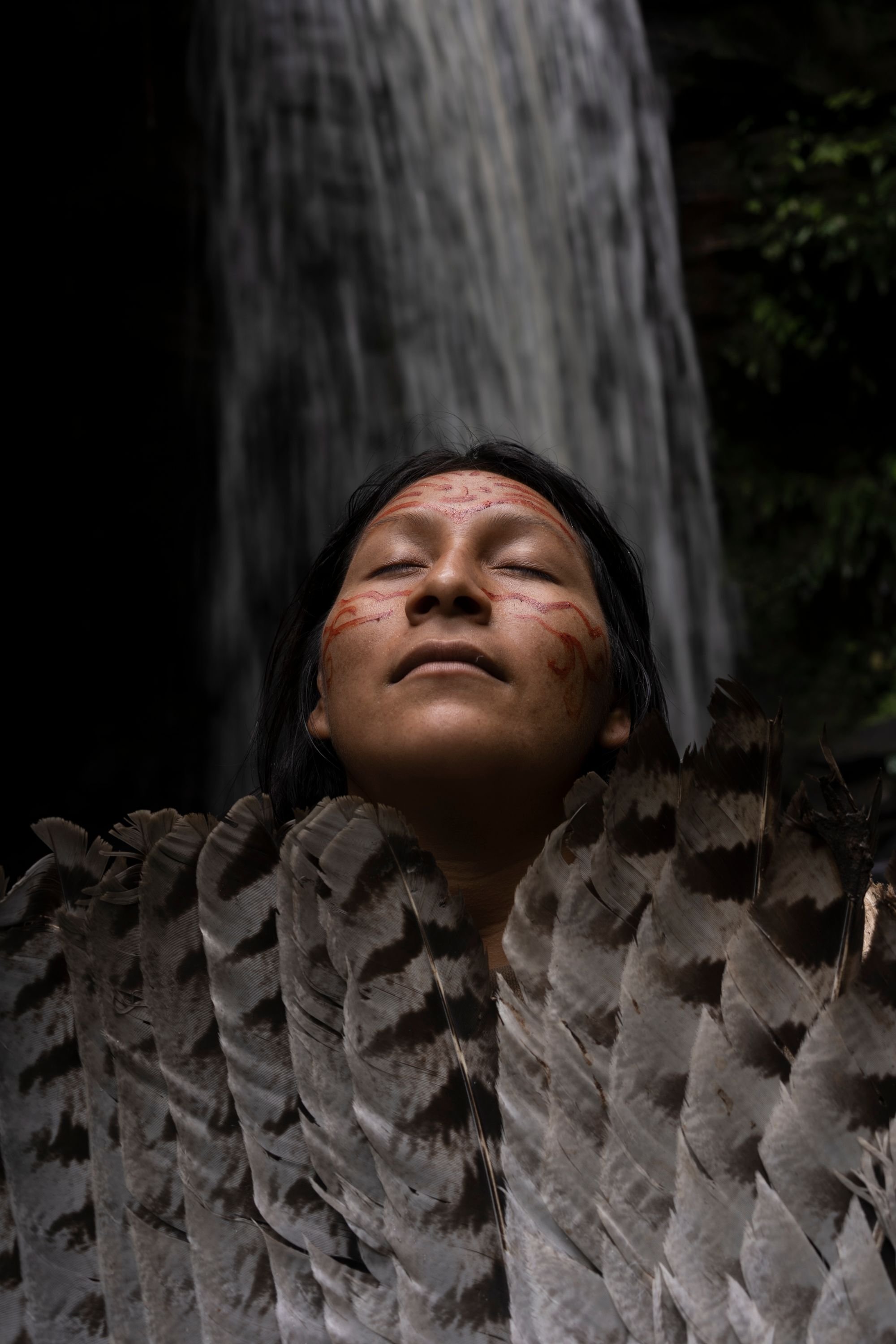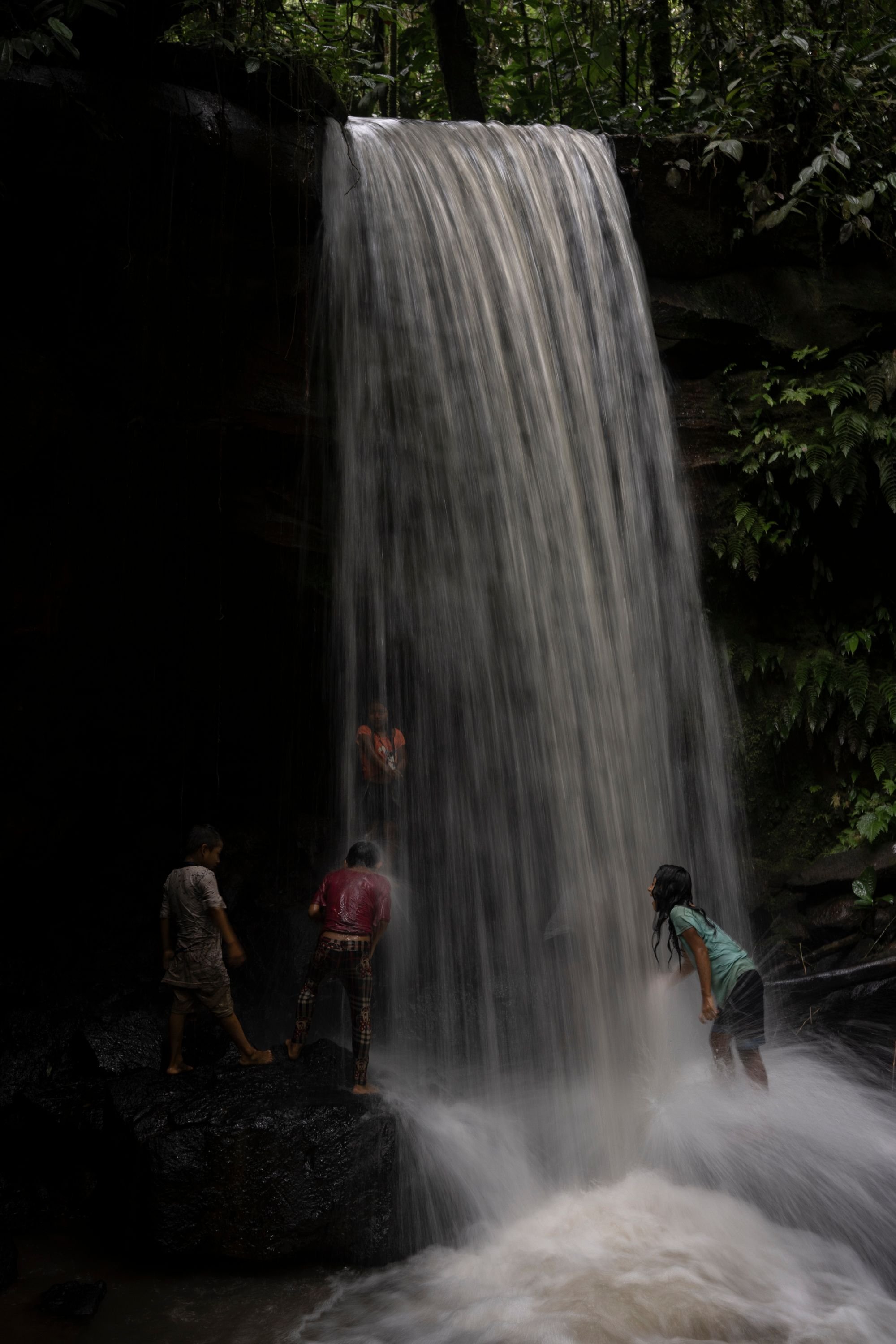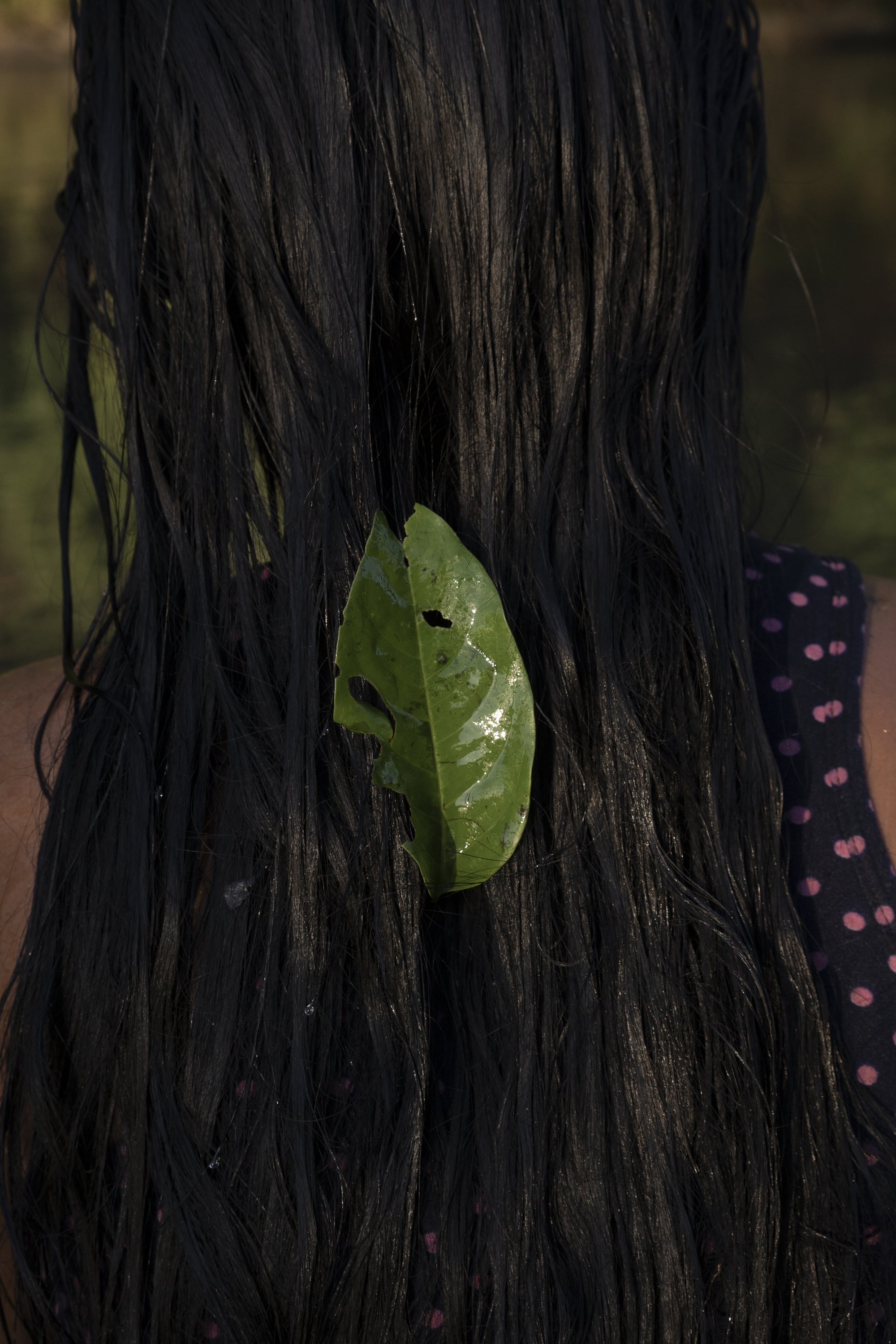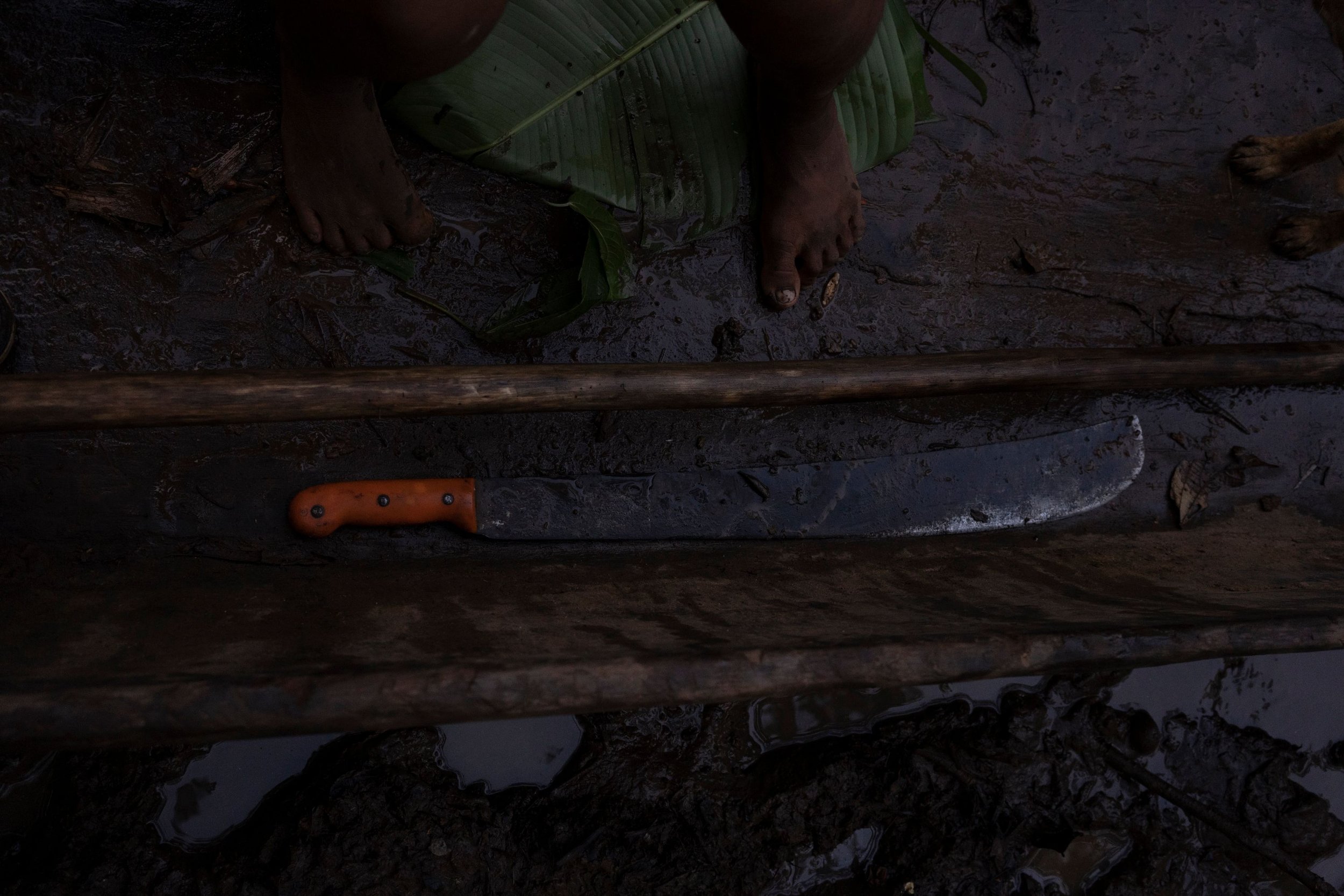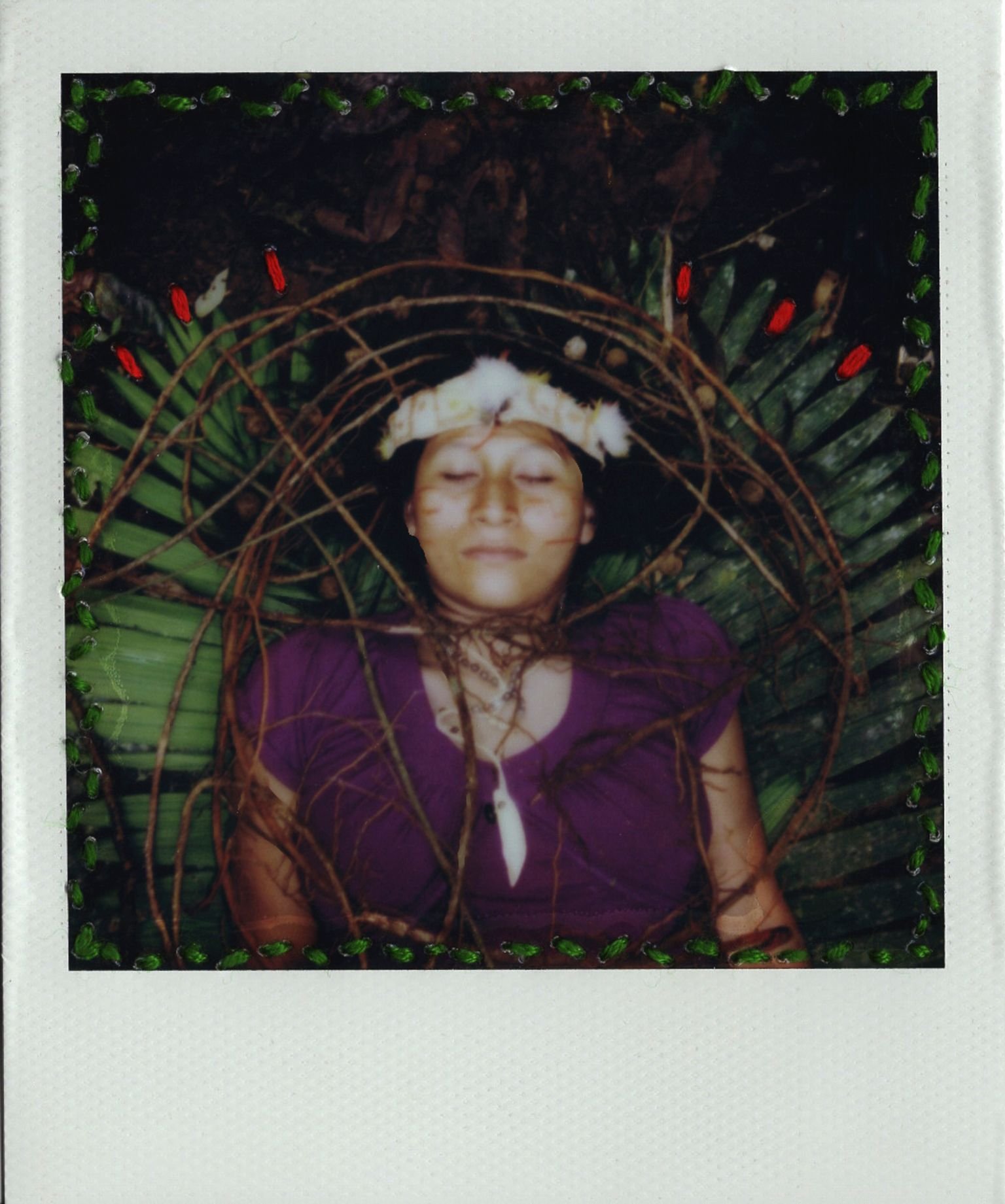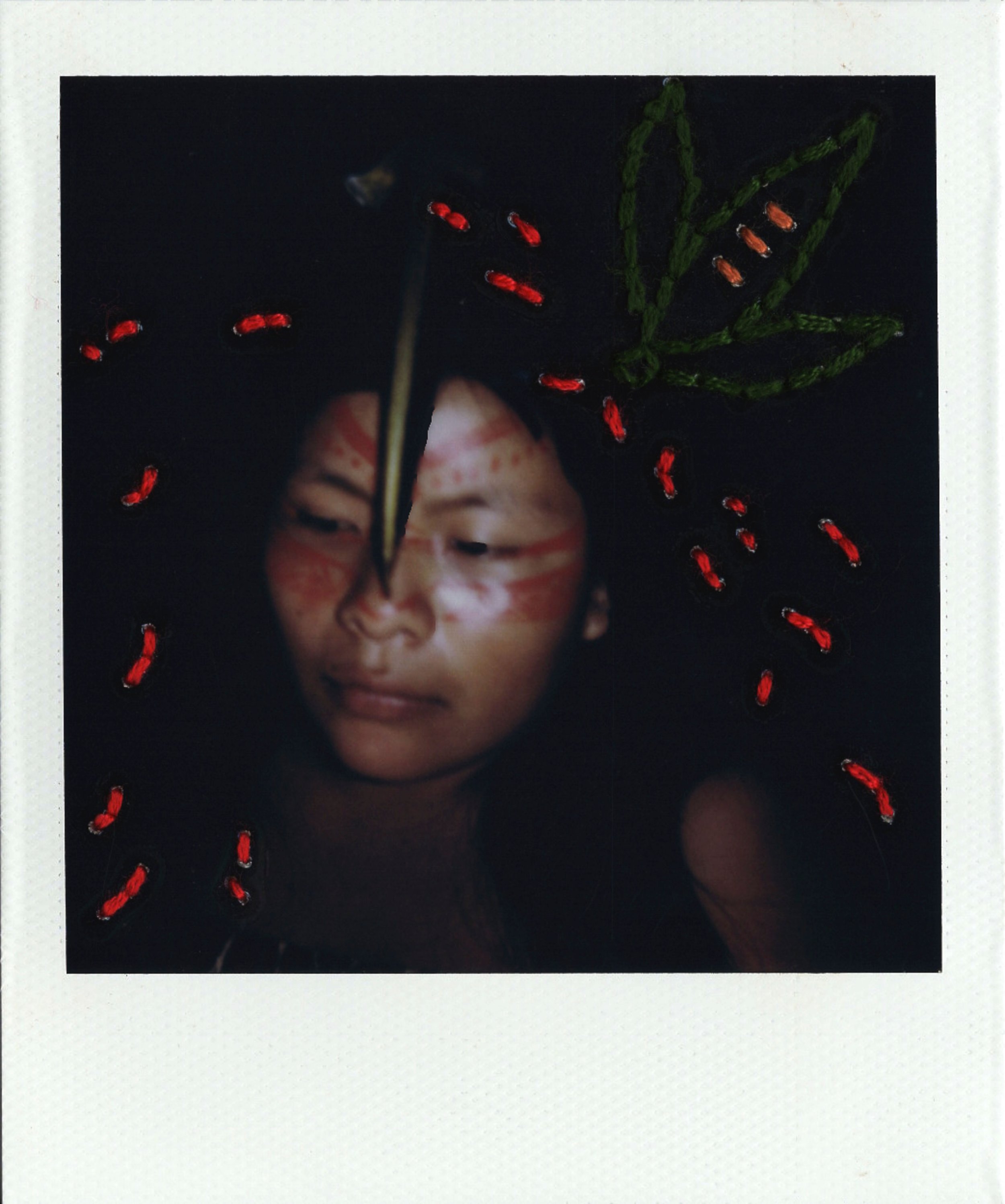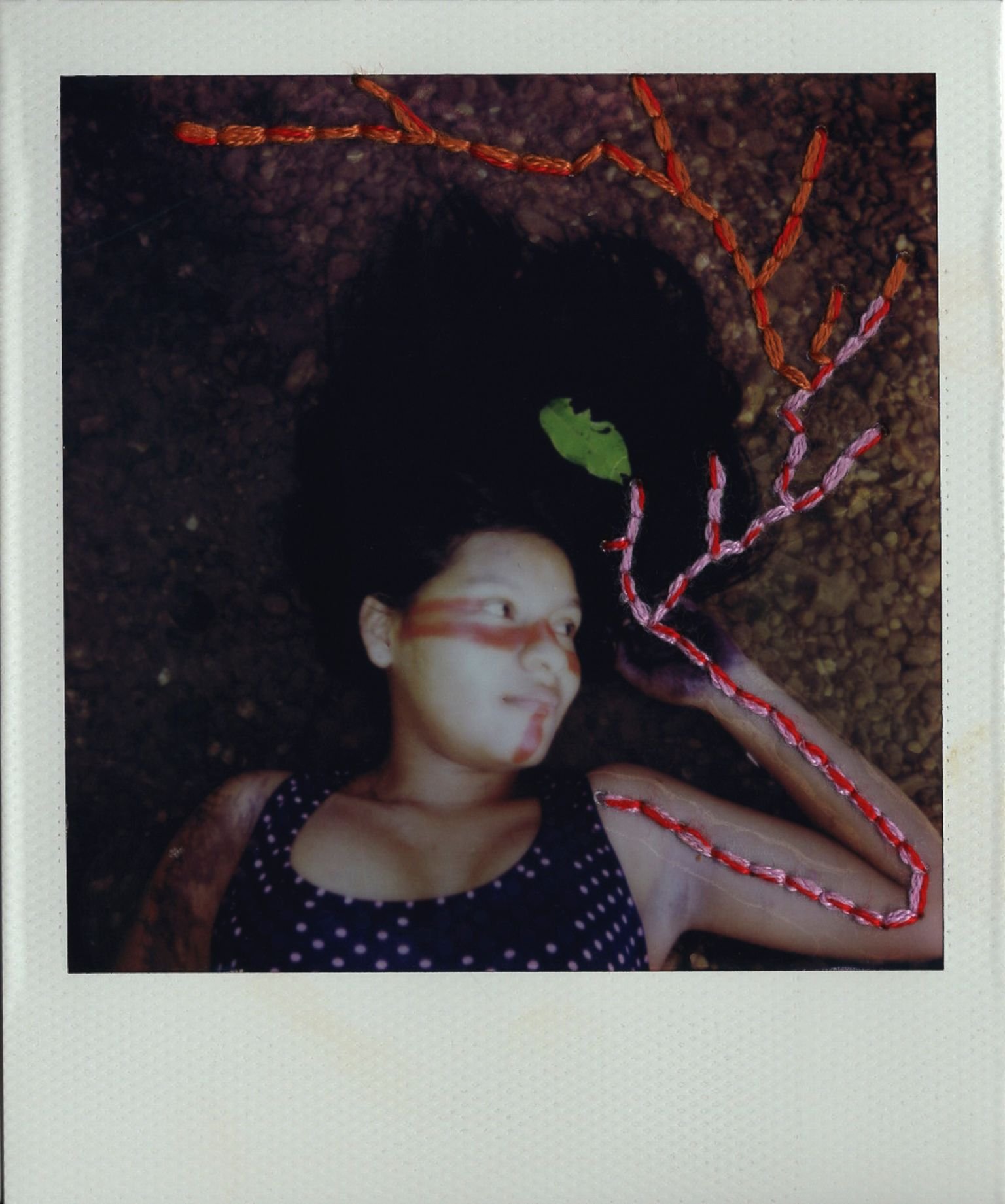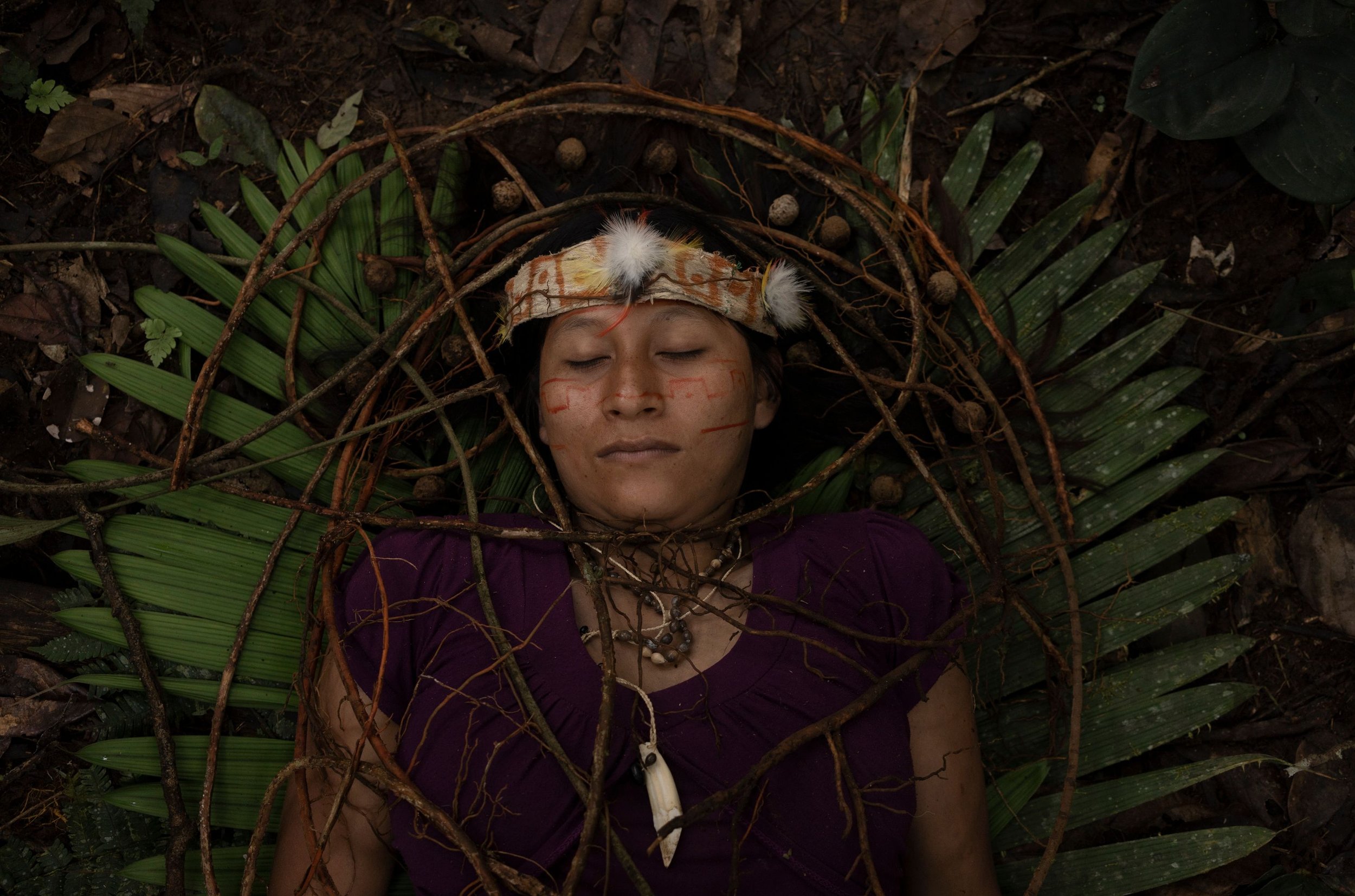IMAGES BY TATIANA LOPEZ
WORDS BY ALEXANDRA BALLA
The Sapara Nation is one of the many Indigenous communities residing in Ecuador’s Amazon. Due to their relative seclusion, the Sapara have retained a firm connection to their traditional culture, which lays a significant emphasis on dreams and the spiritual realm. With longstanding traditions of living close to nature, they continue to follow in the footsteps of their ancestors, minimizing their environmental impact and coexisting peacefully with the forests that sustain them.
The Sapara were among the most significant Indigenous communities in the region before European colonizers arrived in 1890 and conquered the nation. Colonization in the 1890s was largely sponsored by the Ecuadorian government itself. In more recent years, oil exploitation and climate change have severely threatened Sapara land and ways of life.
Many Sapara assimilated into other Indigenous communities and wider Ecuadorian communities as a result of the high levels of colonization, leading many in the 1990s to incorrectly assume that the Sapara no longer existed.
Tatiana Lopez is a photographer, multi-media artist, and visual anthropologist from Ecuador whose projects centre around the exploration of identity and belonging. As a Revolutionary Storyteller grant recipient, she aims to bring attention to the social injustices imposed upon the Sapara nation today, including threats to environmental protection and women’s rights.
Tatiana uses collaborative storytelling techniques by integrating and embracing Indigenous ways of living. This is in an effort to effectively raise awareness and help tell the stories that amplify the voices of those who should be heard.
Tatiana spent almost two years with the Sapara Indigenous community, working towards a thesis project in visual anthropology. Last year, a project focused on Yarishaya Itiumu, The Blooming Women of the Amazon, was created to bring visibility to the role of Sapara women.
Yarishaya Itiumu is a collective of women from the Llanchamacocha community. Their work focuses on creating an inclusive space and leadership where women can feel safe to share their challenges and desires. Together, they weave an alliance and integrate traditional and ecological knowledge to protect their territory and allow themselves self-determination and autonomy.
Sapara women use the craft of embroidery as a metaphor to weave alternative narratives that break free from oppressive standards. By using traditional symbolism and iconography, this project uses photography and embroidery as a means of reconstructing a stronger connection with the natural world.
Of the approximately 600 members remaining in the Sapara community, only three elders continue to speak the Sapara language. This, paired with the migration of youth to larger metropolitan cities, threatens the nation’s very survival. This ongoing project has intended to aid in reclaiming both their land and practices. “Keeping the culture and language alive” is important to everyone in the community.
The Sapara community has long been opposed to the unlawful extraction of “natural resources” from their land. Destructive climate and economic policies are being passed nevertheless.
In 2013, Ecuador signed contracts with the Andes Petroleum oil company without the consent of the Indigenous communities living in these parts. Despite the blatant threat not only to the communities but also to one of the world’s most diverse ecosystems, this is a trend that continues. In May of 2021, President Guillermo Lasso, of Ecuador’s extreme right-wing, issued executive orders that would swiftly increase mining and treble oil output within a year. Land titles were altered to provide foreign and external governments access to the Sapara territory, attracting international investment across Amazon’s protected zones. With this action, the Ecuadorian Ministry of Agriculture attempted to illegally annex 70% of the Sapara land for extractive and monetary interests. That’s the equivalent of threatening to cut down 650,900 acres of pristine rainforest.
Protests and the widespread belief among Sapara residents that Ecuador officials have failed to adequately address community concerns have led to a dramatic increase in aggression and violence. The Yarishaya Itiumu and other Sapara women-organized groups have banded together to fight against resource extraction on their territory.
Sapara women believe they lack the power to exercise territorial self-determination due to their lack of representation and inclusion in decision-making bodies. Although men and women are seen as equal in many Sapara communities, some still view women as caretakers, and they are not involved in making decisions about issues like land rights.
“To preserve a peaceful environment in our lands and the possibility of equality for women in our societies... When the men and women of the Sapara community work together, we are stronger.”
The threat to take over 70% of the Sapara’s land will contaminate their bodies. The women who use the land’s agriculture and river’s waters to feed their children are the ones who feel these effects the greatest.
After speaking and interviewing a lot of the women, Tatiana reports that many have expressed a desire to give women a greater voice in the community “to preserve a peaceful environment in our lands and the possibility of equality for women in our societies… When the men and women of the Sapara community work together, we are stronger.”
Tatiana has worked with Yarishaya Itiumu to document the process of this collective group of women’s fight against these threats as well as how this fight expands to other communities outside of their own.
The Sapara Nation’s ways of life are incredibly rooted in spirituality, one of the aspects that inspired Tatiana’s connection with the Sapara women. Their culture places a high value on dreams and their interpretations – their relationship with the natural world is crucial to nurturing this process. To the Sapara, dreams are not just that – they are engagement with the Spirits and the universe that shape their understanding of the world. Without dreams, they wouldn’t know how to act. The way they are and their values are all believed to be shaped by the spiritual world.
Tatiana’s storytelling places major emphasis on the examination of the relations between humans and their natural environments. She studies the expressive potential of the human body through dreams, body-territory relations regarding Indigenous heritage, and animistic traditions of Indigenous peoples. Reconnecting with our environments and paying attention to what our dreams are telling us is a big part of that.
“To the Sapara, dreams are not just that – they are engagement with the Spirits and the universe that shape their understanding of the world. Without dreams, they wouldn’t know how to act.”
The destruction of culturally significant landscapes and natural ecosystems can sever a person’s connection to their dreams and the spirits that teach them. As a consequence, any outside interference with the natural state of things would endanger the Sapara women’s waking-life behaviours, bodies, and spiritual well-being.
The subjugation of women and their ways of life, both past and present, is a result of colonialism and injustice. Sapara women today are actively resisting extractivism, deforestation, and misogyny, and they are also seeking equal representation and parity in decision-making processes. Yarishaya Itiumu hopes to safeguard the 650,900 acres of primary rainforest from further illegal acquisition attempts, and one of their goals is to bring exposure to the critical role Indigenous Sapara women play in territorial defense.
“The subjugation of women and their ways of life, both past and present, is a result of colonialism and injustice. Sapara women today are actively resisting extractivism, deforestation, and misogyny...”
With this project, there is hope to begin a dialogue about the colonization and resource extraction taking place in Ecuador’s Sapara communities and the effects it has on the women who live there. Indigenous peoples’ perspectives and experiences need to be included and heard in initiatives that benefit mankind. The mission of Yarishaya Itiumu is to spread the word about how important it is to have legal title to one’s land if they want to ensure the continued existence of thriving ecosystems, the safety of Indigenous communities, and the continuity of the witsa ikichanu – what they call “good living.”
This story was created with the support of Aesop and our Revolutionary Storyteller Grant.
Support Sapara women in their process of building a traditional artisan and medicine house, and help them protect ancestral practices.



